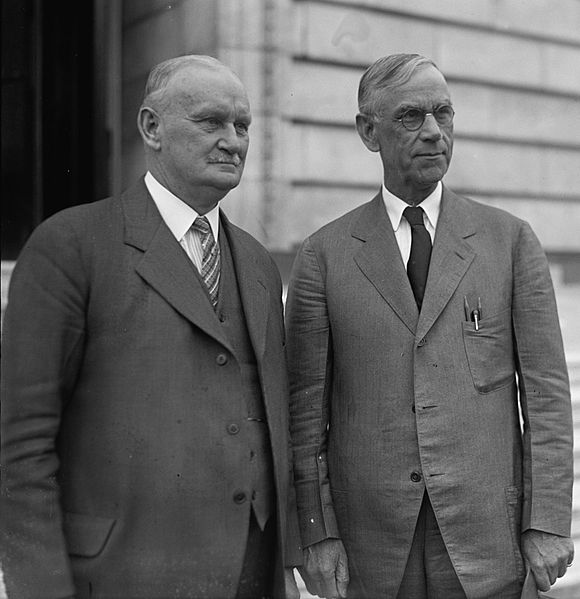Reed Smoot was an American politician, businessman, and apostle of the Church of Jesus Christ of Latter-day Saints. A Republican who was first elected to the U.S. Senate by the Utah State Legislature in 1902, he served from 1903 to 1933. Smoot is primarily remembered as the co-sponsor of the 1930 Smoot–Hawley Tariff Act, which increased almost 900 American import duties. Criticized at the time as having "intensified nationalism all over the world" by Thomas Lamont of J.P. Morgan & Co., Smoot–Hawley is widely regarded as one of the catalysts for the worsening Great Depression.
Reed Smoot
Willis C. Hawley (left) and Smoot in April 1929, shortly before the Smoot–Hawley Tariff Act passed the House
The Tariff Act of 1930, commonly known as the Smoot–Hawley Tariff or Hawley–Smoot Tariff, was a law that implemented protectionist trade policies in the United States. Sponsored by Senator Reed Smoot and Representative Willis C. Hawley, it was signed by President Herbert Hoover on June 17, 1930. The act raised US tariffs on over 20,000 imported goods.
Willis C. Hawley (left) and Reed Smoot in April 1929, shortly before the Smoot–Hawley Tariff Act passed the House of Representatives


